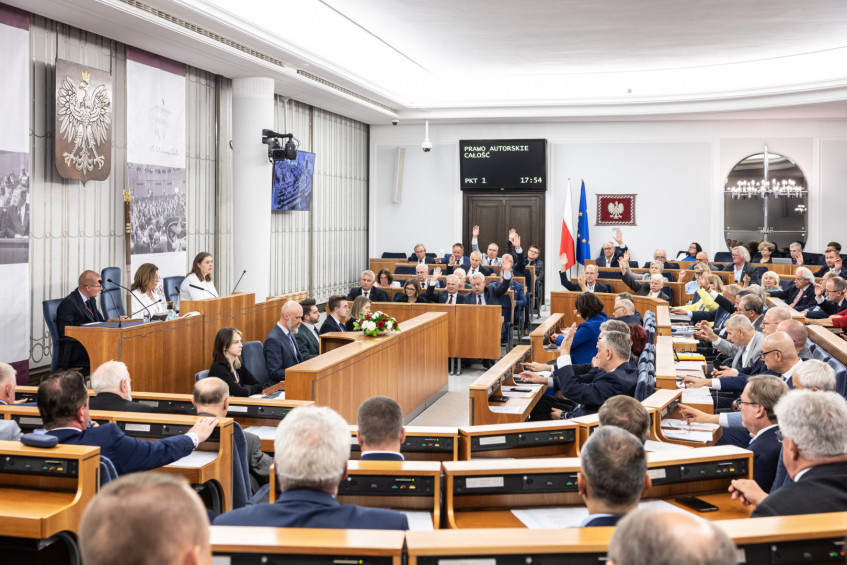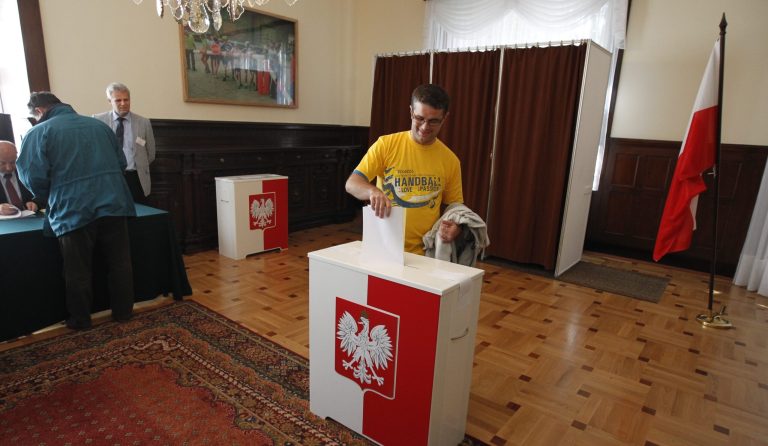Polish Senate amends copyright bill following media protests

Poland’s Senate has made amendments to a proposed new copyright law following protests from media outlets, which claimed that the bill in its previous form favoured Big Tech firms and threatened some publishers with bankruptcy.
The changes introduced by the Senate mean that media firms will be able to seek help from a state agency when negotiating with tech giants such as Google and Facebook over payments for their content. Media representatives welcomed the amendment.
The bill now returns to the more powerful lower house of parliament, the Sejm, which had approved the legislation in its previous form. The Sejm has the power to overturn the Senate’s amendments if it wishes.
Senat przyjął z poprawkami ustawę o zmianie ustawy o prawie autorskim i prawach pokrewnych, ustawy o ochronie baz danych oraz ustawy o zbiorowym zarządzaniu prawami autorskimi i prawami pokrewnymi.
🟢Za: 62
🔴Przeciw: 25
⚪️Wstrzymało się: 1
Ustawa wdraża dyrektywy Parlamentu… pic.twitter.com/jAwRfjLnPw
— Senat RP 🇵🇱 (@PolskiSenat) July 24, 2024
The bill, which was originally passed by the Sejm in late June and aimed to implement an EU directive, gave publishers the ability to demand payment from tech firms for their content when it appears on their platforms.
Media outlets, however, argued that without the state’s support, publishers, especially small local ones, would find it difficult to negotiate fair remuneration due to the advantage the tech giants have over them.
Over 350 outlets – including both local media and some of Poland’s biggest publishers – jointly protested the bill earlier this month and demanded that the Senate add an amendment – previously rejected by Sejm – that would guarantee state support in the negotiation process.
Over 350 Polish media outlets are jointly protesting today against a proposed copyright law – implementing an EU directive – that they say would benefit tech giants who can „use our content free of charge and with impunity, and transfer the profits abroad” https://t.co/hJQ77dIaZZ
— Notes from Poland 🇵🇱 (@notesfrompoland) July 4, 2024
In response, Prime Minister Donald Tusk invited the media for talks on the bill. His ruling coalition has a majority in both the Sejm and the Senate.
Under the amendment adopted by the Senate yesterday, the head of the Office of Electronic Communications (UKE), the state telecommunications regulator, will act as a mediator between technology companies and publishers.
UKE will be able to start mediation if there is no agreement between a tech company and a media outlet three months after one of the parties has made an offer. The mediation will last a maximum of 60 days, unless the parties agree to extend it.
If mediation fails, either party will be able to apply to the president of UKE to determine the level of remuneration. They will have 60 days to issue a decision, which can then be appealed at the district court in Warsaw.
Sorry to interrupt your reading. The article continues below.
Notes from Poland is run by a small editorial team and published by an independent, non-profit foundation that is funded through donations from our readers. We cannot do what we do without your support.
Yesterday, a majority of 62 senators in the 100-seat Senate voted in favour of the amended bill. While support came from Tusk’s ruling coalition, 25 senators from the national-conservative Law and Justice (PiS) party, the main opposition, were opposed.
The bill will now go back to the Sejm, which is scheduled to vote on it again tomorrow afternoon. Once approved by parliament, it will pass to President Andrzej Duda, who can sign it into the law, veto it, or send it to the constitutional court for assessment.
Media figures welcomed the amendment. Jarosław Włodarczyk of Press Club Polska noted that the new procedure “forces both sides, media, publishers and big tech, to sit down at the table”.
“We know that it is the case that technology companies try to prolong these processes and prolong these negotiations as long as possible, and in the meantime, the media outlets die,” said Bartosz Węglarczyk, chairman of the Polish Media Council and editor-in-chief of news website Onet.
“So the fact that the state has joined in, that the state is planning to join in is very good,” he told broadcaster TVN.
Państwo wejdzie w momencie, gdy ten proces będzie się zbyt długo przedłużał – stwierdził w @tvn24 przewodniczący Rady Mediów Polskich i redaktor naczelny Onetu Bartosz Węglarczyk, komentując poprawki senatorów do noweli ustawy o prawie autorskim.https://t.co/qwXxXzDOsU
— TVN24 BiS (@TVN24BiS) July 24, 2024
Main image credit: Tomasz Ozdoba / Kancelaria Senatu (under CC BY-NC-ND 3.0 PL)

Alicja Ptak is senior editor at Notes from Poland and a multimedia journalist. She previously worked for Reuters.






